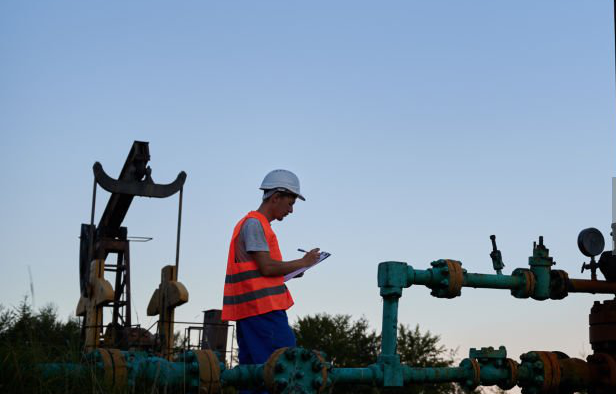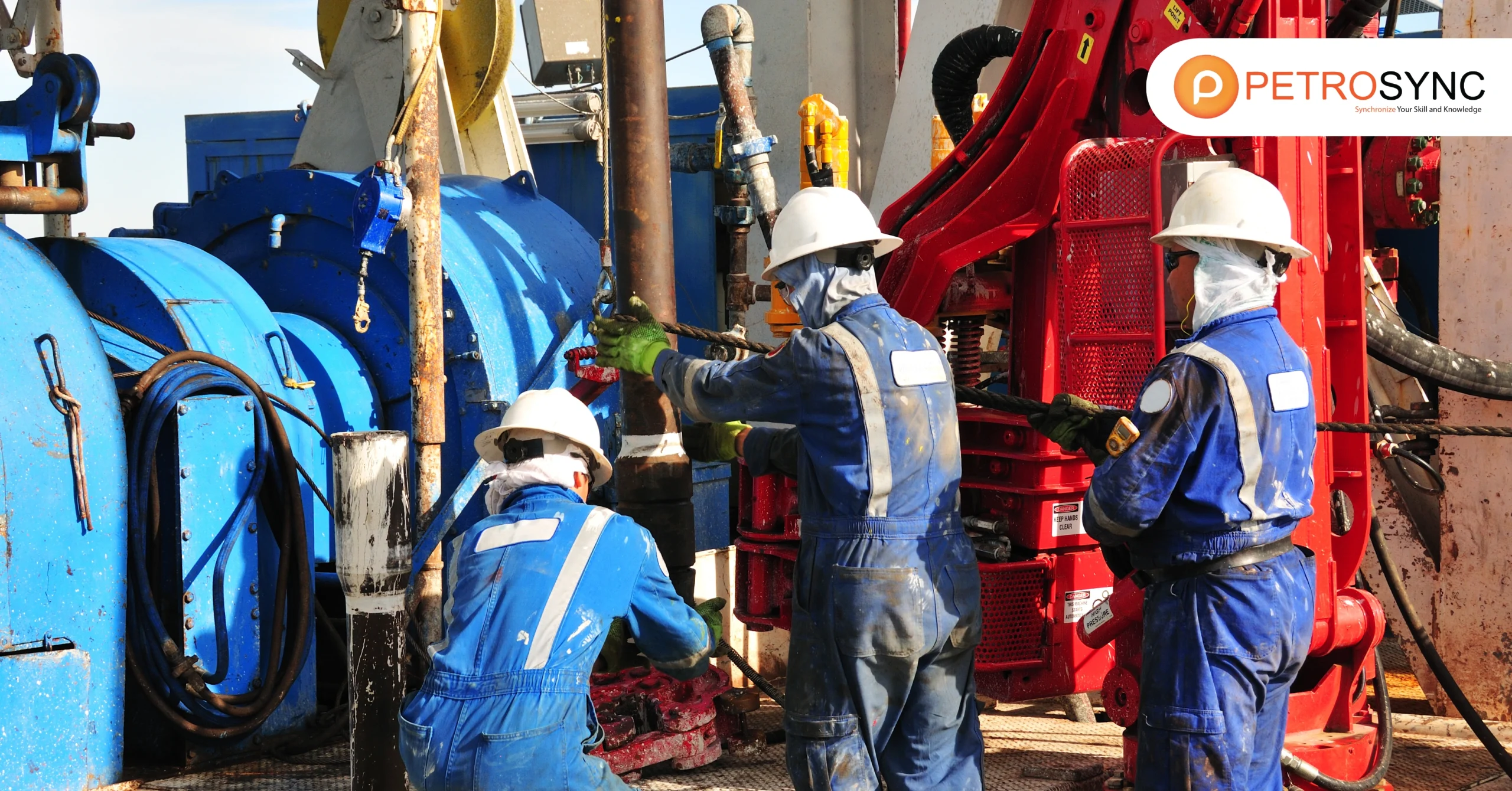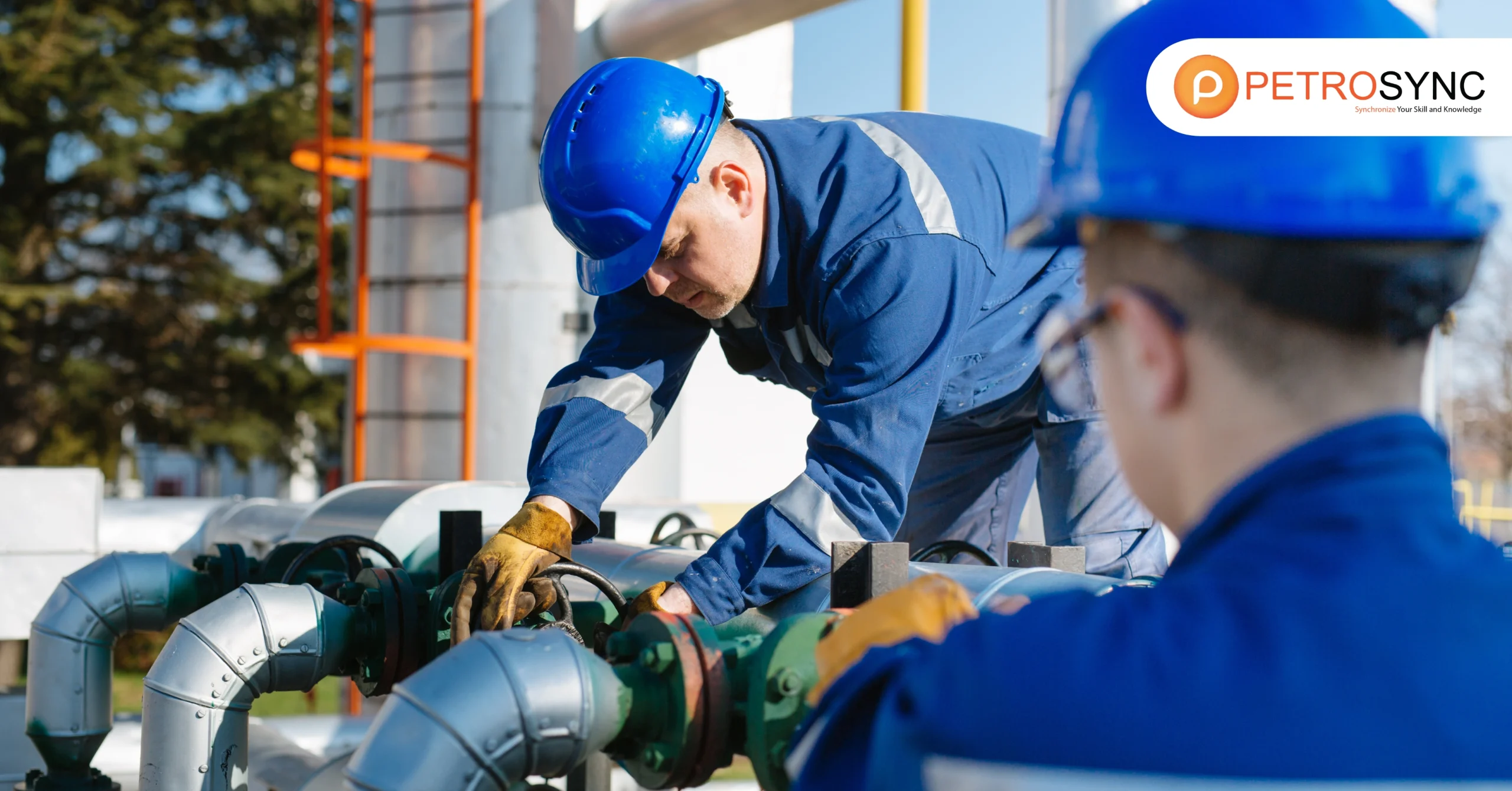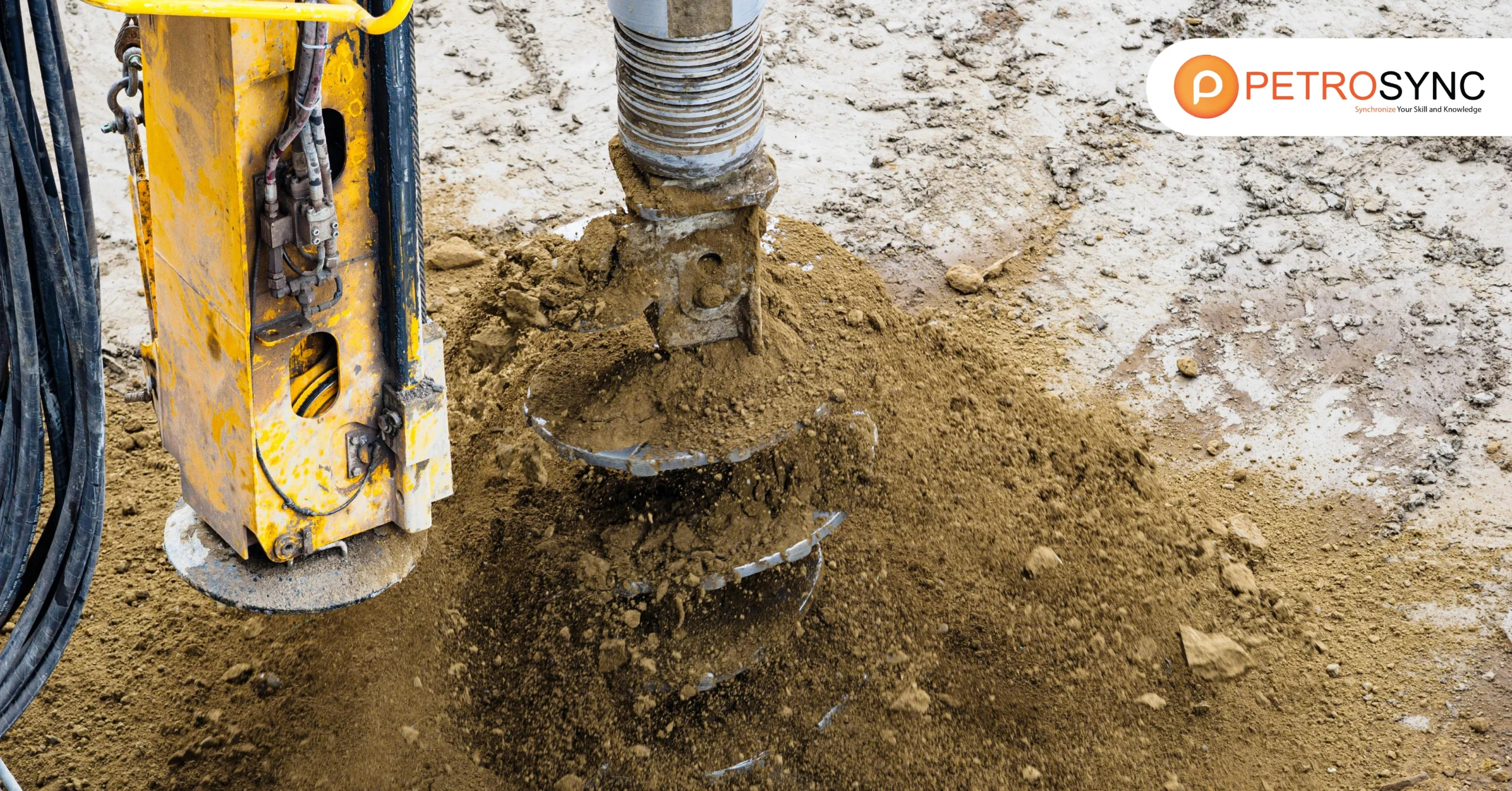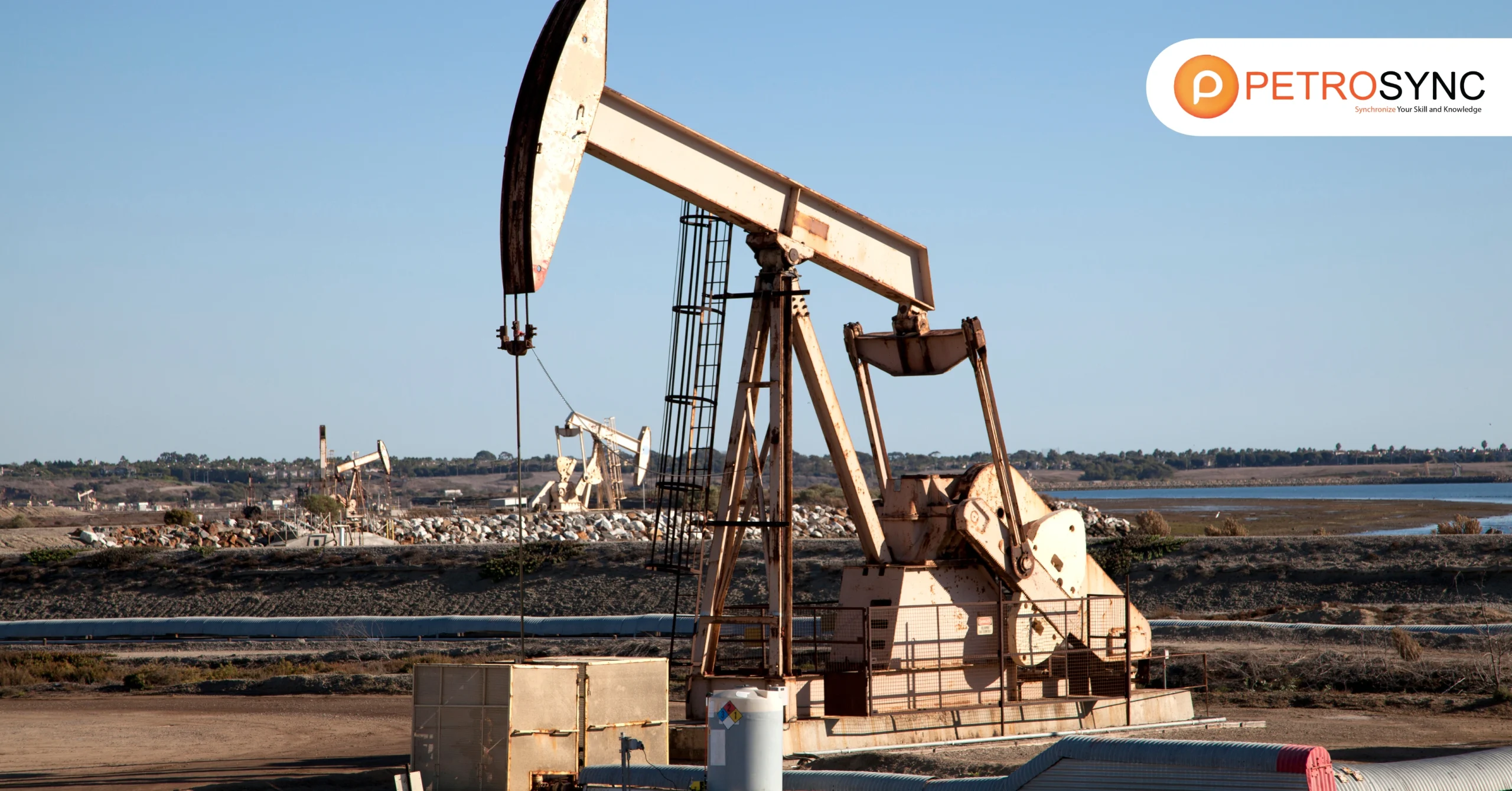Drilling in the oil and gas industry involves intricate processes and techniques, often requiring specialized skills and knowledge to execute effectively. However, navigating these challenges can be daunting without proper training and preparation. In this article, we will explore the importance of drilling training, the associated costs, the numerous benefits it offers, and the diverse range of programs tailored to meet the needs of individuals and organizations in the industry
What Is Drilling Training?
Drilling training is a type of hands-on education where you learn about the processes involved in the drilling of oil and gas wells, and how to operate drilling equipment safely and effectively. This training typically covers topics such as equipment operation, safety protocols, maintenance procedures, and environmental considerations.
The training prepares you to work in industries like oil and gas extraction, mining, construction, and water well drilling. The aim is to ensure that you can perform your duties efficiently while minimizing risks to yourself, others, and the environment.
Through drilling training, you become proficient in handling various types of drills, understanding the importance of safety measures, and troubleshooting common issues that may arise during drilling operations. Overall, drilling training equips you with the knowledge and skills necessary to carry out drilling tasks safely and efficiently in your respective fields of work.
What Is Basic Drilling Engineering?
Basic drilling engineering is a branch of knowledge where the design, analysis, and implementation procedure are completed to drill as well as sustainably as possible, focused on the fundamental principles and techniques involved in drilling for resources such as oil, gas, and water. It covers essential concepts like drilling equipment, techniques, and methods used to extract these resources from the earth.
Basic drilling engineering also includes understanding geological formations, well design, drilling fluid management, and safety practices. The goal of basic drilling engineering is to equip you with the knowledge and skills necessary to plan and execute drilling operations efficiently and safely.
By understanding the principles of basic drilling engineering, you can ensure that drilling operations are conducted in a manner that minimizes environmental impact, maximizes resource recovery, and maintains safety standards.
What Are The Benefits of Joining A Drilling Training?
There are some benefits of joining a drilling training, especially for oil and gas engineer
1. Enhanced Safety Awareness
Participating in drilling training programs increases your awareness of safety protocols and practices specific to drilling operations. You learn how to identify potential hazards and take proactive measures to prevent accidents. By understanding safety procedures, you can effectively contribute to creating a safer work environment for yourself and your colleagues.
2. Improved Operational Efficiency
Drilling training equips you with the knowledge and skills needed to operate drilling equipment efficiently. You learn about proper equipment maintenance, troubleshooting techniques, and operational best practices. This allows you to carry out drilling tasks more effectively, reducing downtime and increasing productivity on the job site.
3. Expanded Career Opportunities
Completing drilling training enhances your qualifications and makes you more competitive in the job market. Employers often prioritize candidates with formal training and certification in drilling operations. By investing in training, you open up opportunities for career advancement and may qualify for higher-paying positions within the drilling industry.
4. Environmental Responsibility
Drilling training emphasizes the importance of environmental stewardship in drilling operations. You learn about sustainable drilling practices, waste management techniques, and environmental regulations governing drilling activities. By adopting environmentally responsible practices, you contribute to minimizing the ecological impact of drilling operations and preserving natural resources for future generations.
5. Comprehensive Knowledge Base
Engaging in drilling training provides you with a comprehensive understanding of various aspects of drilling operations, including geology, equipment technology, fluid dynamics, and safety protocols. This broad knowledge base allows you to adapt to different drilling environments and challenges, making you a versatile and valuable asset in the industry.
Overall, joining a drilling training program offers you the opportunity to acquire essential skills, knowledge, and certifications that can significantly benefit your career in the drilling industry.
What Are The Range of Topics of Drilling Training in PetroSync?
PetroSync offers comprehensive drilling training programs covering a wide range of topics essential for you as a professional in the oil and gas industry.
1. Applied Drilling Well Engineering
In PetroSync’s Applied Drilling Well Engineering course, you will delve deep into the intricacies of well design and construction over a span of five days. The objective is to provide you, as a well engineer, with practical insights and advanced techniques to excel in your role.
Throughout the program, you will engage in a hands-on approach, treating well construction as a meticulous design process. With real-world scenarios and practical examples, you will enhance your theoretical knowledge and hone your skills in designing wells.
The course covers all facets of well design and operations, including aspects typically managed by contractors, allowing you to refine your understanding and adapt to evolving conditions as you progress.
| Registration Fee | USD 3550 |
| Duration | 5 Days |
| Available Date |
|
2. Advanced Well Log Analysis Interpretation
In the Advanced Well Log Analysis & Interpretation training, you will dive into the crucial role of well logs in understanding geologic formations and assessing reservoir properties. These detailed records are essential for identifying petrophysical properties that determine the economic value of a reservoir.
As a participant, you will learn techniques for analyzing and interpreting well logs, vital for maximizing oil recovery in the exploration and production (E&P) business. Petrophysical engineers play a key role in this process, providing crucial insights into subsurface reservoir data that inform reservoir models.
If you are involved in integrated petroleum engineering studies or field development plans, this training equips you with the specialized skills needed to contribute quality input to development strategies.
| Registration Fee | USD 3295 |
| Duration | 5 Days |
| Available Date |
|
3. Well Completion Workover
In this training program, you will gain a comprehensive understanding of well completions and workover operations crucial for maintaining well integrity and ensuring continuous production or injection.
We will cover a range of topics including completion techniques, equipment, perforating methods, wellhead and downhole equipment, hydraulic fracturing, acidizing, squeeze cementing, and scale removal techniques.
Throughout the course, you will learn practical applications of these techniques, from selecting the right completion type to designing perforation strategies and selecting fluids. We will also delve into real-world case studies to analyze success and failure scenarios in different operating environments, giving you valuable insights into completion design projects. By the end, you will be equipped with the knowledge and tools to tackle various oil well completion challenges with confidence.
| Registration Fee | USD 4195 |
| Duration | 5 Days |
| Available Date | Request for in house |
4. Well Integrity Cased Hole Logging
In the Well Integrity Cased Hole Logging training, you’ll dive into the fundamentals of rock physics properties and petrophysical parameters crucial for interpreting cased hole logs. We’ll start by introducing you to open hole logging tools used to gather these parameters and analyze their output data for reservoir evaluation. You’ll learn how to conduct Quick Look Well Log Interpretation to assess reservoir quality efficiently.
Throughout the course, we’ll explore the principles and interpretation techniques of cased hole logging tools, focusing on their application in reservoir monitoring. You’ll discover how to utilize output data from tools such as CBL, VDL, TDT, RST, RFT, MDT, and PLT logs to monitor reservoir conditions effectively.
| Registration Fee | USD 3295 |
| Duration | 5 Days |
| Available Date |
|
5. Advanced HPHT Well Engineering
In the Advanced HPHT Well Engineering Training, you’ll embark on a scenario-based learning aimed at equipping drilling and completion engineers with the expertise needed for High-Pressure and High Temperature (HPHT) well operations. Through this course, you’ll delve into the intricacies of HPHT well design, drilling, and completion, gaining a deep understanding of the challenges involved.
Starting with an exploration of HPHT pressure profiles and geology, you’ll progress through various aspects of well design while tackling real-life scenarios. This hands-on approach ensures that you not only grasp the theory and technical aspects but also gain practical experience in handling HPHT issues. If you’re part of a single-client group, the course scenario can even be tailored to your own well challenges, providing invaluable insights into addressing HPHT challenges specific to your operations.
| Registration Fee | USD 3550 |
| Duration | 5 Days |
| Available Date |
|
6. Water Flooding Management
In the Water Flooding Management training, you’ll gain a thorough understanding of the water flooding system—a key method for secondary oil recovery in reservoirs. This course focuses on every aspect of the water flooding process, from its components to its operation.
You’ll learn how clean, non-corrosive water is injected into reservoirs to displace remaining oil, maintaining reservoir pressure and enhancing oil recovery. By the end of the training, you’ll have a solid grasp of the mechanics of water flooding and be equipped to understand, operate, and inspect water injection systems effectively. Through real-world examples, you’ll also learn to identify potential problems and implement solutions to optimize oil recovery.
| Water Flooding Management | |
| Registration Fee | USD 4195 |
| Duration | 5 Days |
| Available Date | Request for in house |
7. Artificial Lift Method
In the Artificial Lift Methods training, you’ll explore a comprehensive overview of different solutions for artificial lift and production optimization, all within the context of the reservoir life cycle. This course starts by explaining why artificial lift systems are necessary, then delves into various lift methods such as Gas Lift, Reciprocating Rod Lift, Progressive Cavity Pumping (PCP), Hydraulic Pumping (HP), Electrical Submersible Pumping (ESP), Plunger, and Capillary System. For each method, we’ll cover key components, application scenarios, and strengths and weaknesses.
| Registration Fee | USD 4195 |
| Duration | 5 Days |
| Available Date |
|
8. Stuck Pipe Prevention Fishing Operation
In the Stuck Pipe Prevention training, you’ll learn practical techniques to help eliminate or significantly reduce incidents of stuck pipes. Whether you’re part of the drill crew, a supervisor, or service personnel, this course equips you with the knowledge needed to minimize the occurrence of stuck pipe events and swiftly resolve them if they do occur. We’ll draw upon real-world data from your organization, tailoring the training to address specific situations you may encounter. By analyzing past stuck pipe incidents, we’ll identify areas for improvement and highlight successful strategies.
| Registration Fee | USD 2850 |
| Duration | 3 Days |
| Available Date |
|
9. Coiled Tubing
In the Coiled Tubing Operation training, you’ll get a comprehensive overview of coiled tubing operations and its role in oil fields. We’ll cover various coiled tubing technologies, focusing on both surface equipment and downhole tools. Throughout the course, you’ll learn about the main components, applications, and special uses of coiled tubing, as well as contingency plans for any potential challenges you may encounter during operations.
This training isn’t just about theory; it’s about practical application. Through presentations, case studies, group discussions, exercises, and real-life videos, you’ll gain a better understanding of wellbore treatments aimed at enhancing well performance.
| Registration Fee | USD 2995 |
| Duration | 5 Days |
| Available Date | Request for in house |
10. Oil Process Facilities
In the Oil Process Facilities training, you’ll gain a solid understanding of the fundamentals of production operations, from the well to processing facilities. This course breaks down the functions of various components in oil field operations, ensuring you understand not just “what” they do, but also “how” they work. By learning about the wide range of equipment used for production handling and treatment, you’ll be equipped to optimize operations and improve production economics.
A key goal of this training is to enhance communication and cooperation among technical disciplines across organizations. By fostering a spirit of teamwork and cooperation, we aim to improve operational performance and optimize costs. Ultimately, this training serves as the operator’s best insurance for achieving safe and cost-effective operations. Through this course, you’ll develop the knowledge and skills needed to contribute to successful oil process facilities operations.
| Registration Fee | USD 4195 |
| Duration | 5 Days |
| Available Date | Request for in house |
11. Upstream Petroleum Economics, Risk, And Fiscal Analysis
In the Upstream Petroleum Economics, Risk, and Fiscal Analysis training, you’ll dive into the crucial aspects of evaluating investments in the oil and gas industry. Given the unpredictable nature of oil prices, it’s essential to conduct thorough economic assessments for various business decisions, from asset acquisitions to field development.
Throughout this course, you’ll learn how to analyze cash flows, interpret economic indicators, and conduct detailed probability and fiscal analyses. These skills are vital for assessing the feasibility and profitability of upstream oil and gas investments in today’s dynamic market.
| Registration Fee | USD 5250 |
| Duration | 3 Days |
| Available Date |
|
12. Wellbore Treatment
In the Wellbore Treatments training, you’ll gain a deeper understanding of various treatments used to improve or recover well performance. We’ll focus on enhancing your knowledge and decision-making skills for implementing these treatments effectively.
To make informed decisions, it’s crucial to grasp the basics of formations and reservoir properties. That’s why we’ll start by covering the geological and reservoir properties of vertical, horizontal, and multilateral wells. From there, we’ll delve into concepts like formation damage, acidizing, and hydraulic fracturing.
Throughout the course, you’ll learn about acidizing and fracturing quality control, conducting treatments, and monitoring critical parameters. Through teamwork exercises, you’ll have the opportunity to evaluate
| Registration Fee | USD 2995 |
| Duration | 3 Days |
| Available Date | Request for in house |
Who Should Join The Drilling Training by PetroSync?
The drilling training by PetroSync is suitable for individuals in various roles within the oil and gas industry. If you work as a:
- Drilling engineers
- Drilling supervisors
- Drilling contractors
- Drilling technicians
- Drilling operations managers
- Drilling rig managers
- Drilling equipment operators
Or any related positions within the oil and gas industry. Drilling training is designed to enhance your skills and knowledge in drilling operations.
In conclusion, the drilling training offered by PetroSync provides valuable knowledge and skills for individuals across various roles in the oil and gas industry. Whether you’re a drilling engineer, supervisor, technician, or manager, this training equips you with the tools needed to excel in drilling operations. By enhancing your understanding of drilling techniques, safety protocols, and equipment operation, this training empowers you to contribute effectively to drilling projects and advance your career in the industry.
Credit header image: iStock

SEO specialist by day, fact-checker by night. An avid reader and content writer dedicated to delivering accurate and engaging articles through research and credible sources.

